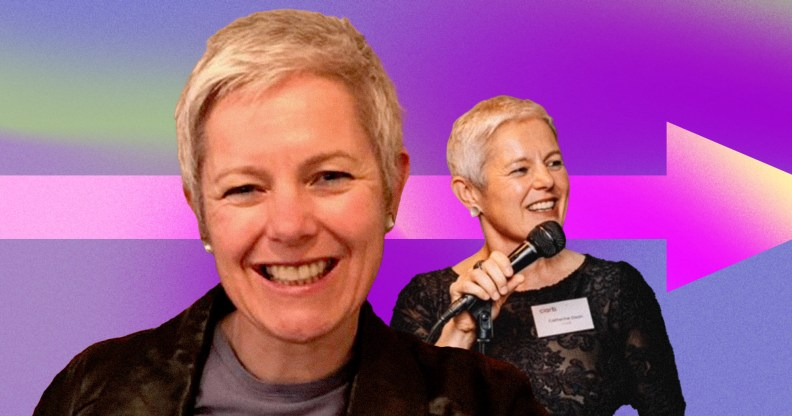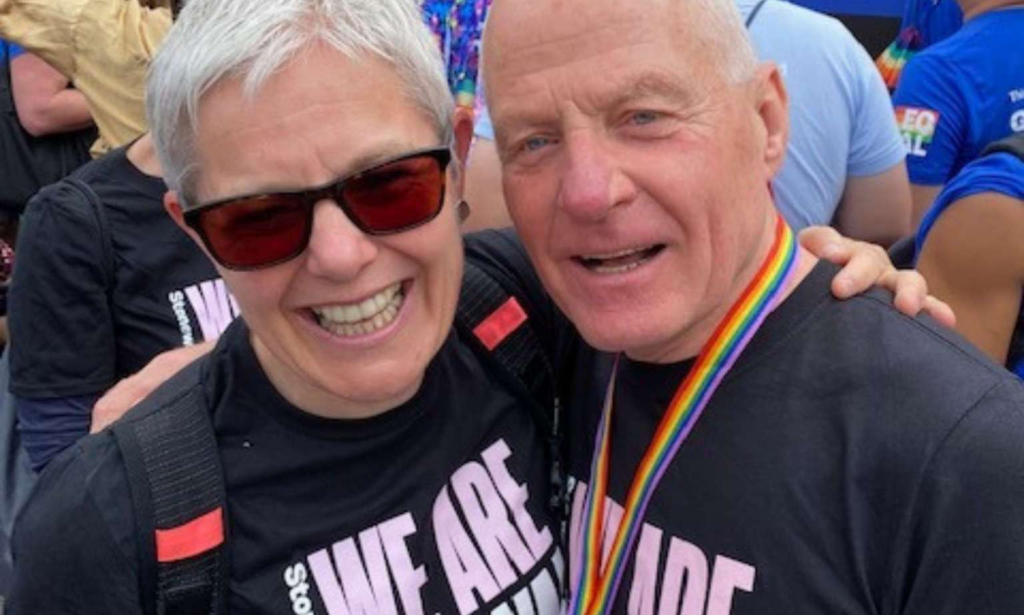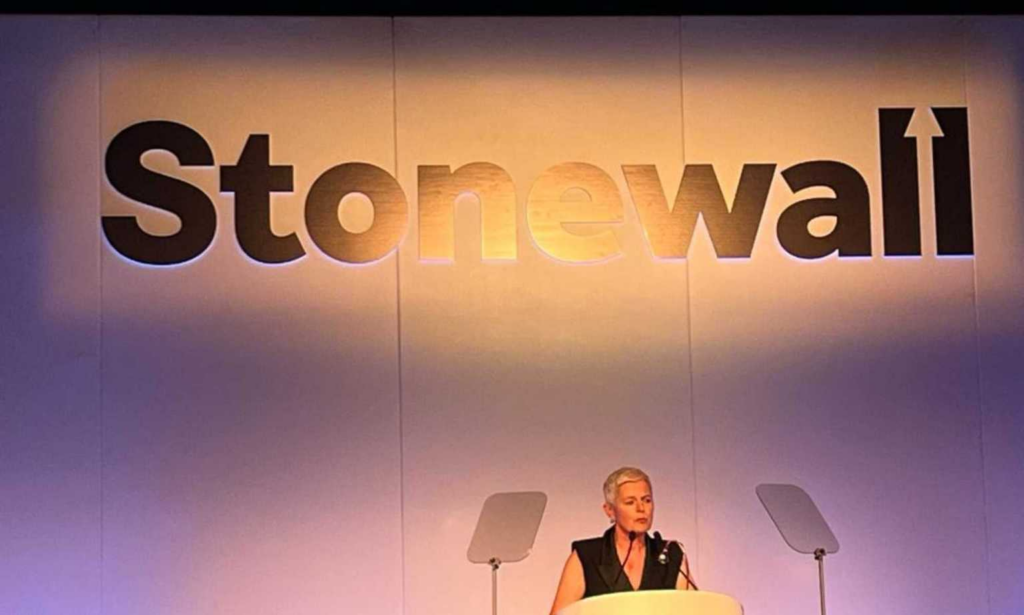
Stonewall’s newly appointed Chairwoman, Cat Dixon, has expressed her strong commitment to keeping the organization at the forefront of LGBTQ+ rights advocacy and ensuring its continued relevance in the national discourse. Dixon, who was unanimously elected by the board of trustees in October, shared her immense pride in taking on the role while acknowledging the significant responsibility it carries.
As Stonewall’s longest-serving trustee and former vice-chairwoman, Dixon’s appointment followed the departure of Nancy Kelley as chief executive in July. Her extensive professional background includes leadership positions in organizations such as The Law Society, NHS Resolution, higher-education institutions, BUPA, and the NSPCC, as well as service as an army officer. In a unique personal achievement, she also holds the world record for the fastest tandem circumnavigation of the globe, set in 2020.

Raised in a working-class family in Hull, Dixon has a deep personal connection to Stonewall, which was in its early stages during the late 1980s. She aims to preserve the organization as a strong, influential, and dedicated advocate for LGBTQ+ rights.
Dixon reflected on the progress made since her own coming out experience in her teens, highlighting the significant changes in LGBTQ+ rights, including marriage equality. However, she stressed the importance of maintaining progress and preventing setbacks, especially given recent concerning developments. She emphasized the need to continue campaigning and engaging with the majority of the population who support LGBTQ+ rights.

Dixon’s personal journey was shaped by the challenges of growing up during the HIV/AIDS crisis, Section 28, and serving in the army during the gay military ban era. These experiences of discrimination and prejudice fueled her passion for LGBTQ+ activism and her commitment to supporting Stonewall.
She recounted an early experience when attending a lesbian event, which was a pivotal moment in her journey of self-discovery. It reinforced the importance of living authentically and being true to oneself, especially in an era when LGBTQ+ individuals often had to hide their identities.
Looking back, Dixon would advise her younger self to “just be yourself and live the life you want.” She acknowledged that she never expected to hold the top leadership position at Stonewall.
Dixon’s appointment comes at a challenging time for the LGBTQ+ community, with issues like transphobia in the media, political exploitation of transgender issues, the absence of a conversion therapy ban, and questions about LGBTQ+-inclusive education. Stonewall’s priorities going forward include advocating for a conversion therapy ban, demedicalizing the Gender Recognition Act, addressing rising hate crime figures, and pushing for hate crime to be treated as an aggravated offense.

Dixon also emphasized the importance of supporting LGBTQ+ youth in exploring their sexuality and gender in a safe and inclusive educational environment, echoing Stonewall’s roots in addressing Section 28. Healthcare issues, such as social care for older LGBTQ+ individuals, accessibility to IVF, and reducing waiting lists for gender-affirming care for trans individuals, are additional areas of concern.
Despite the challenges, Dixon stressed the presence of allies in politics and the commitment to engaging in conversations to influence change. She emphasized the need to remain focused on these allies amidst the current toxic rhetoric surrounding LGBTQ+ rights.
Author























